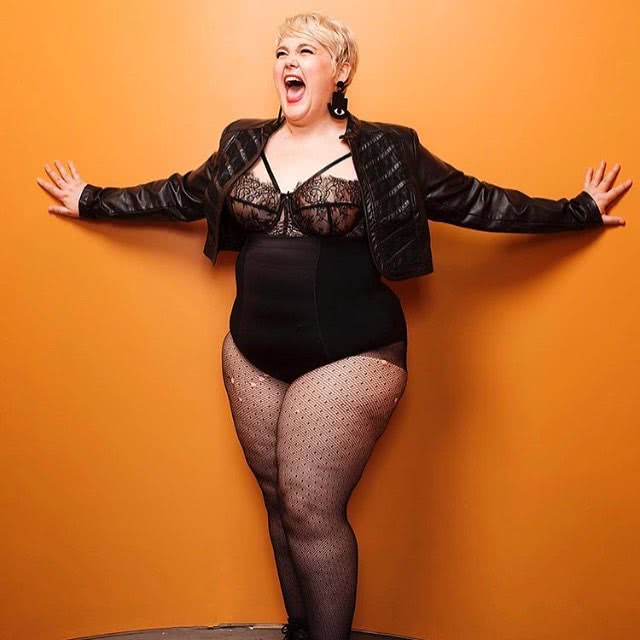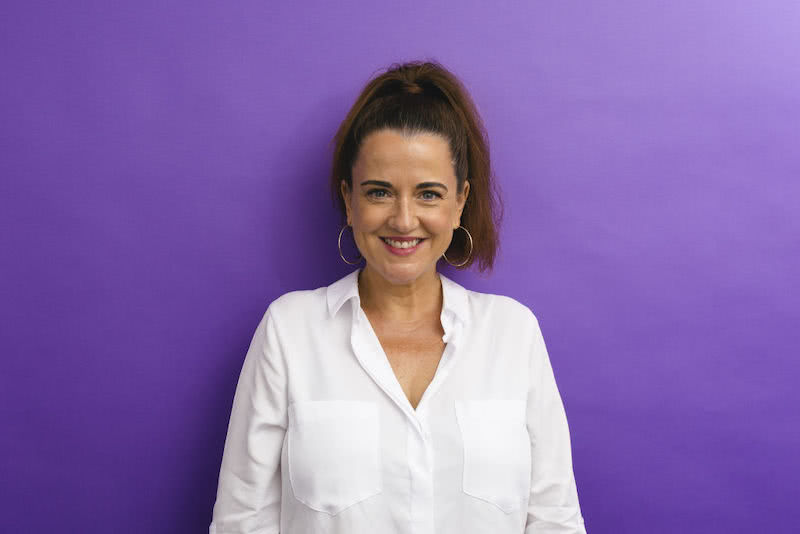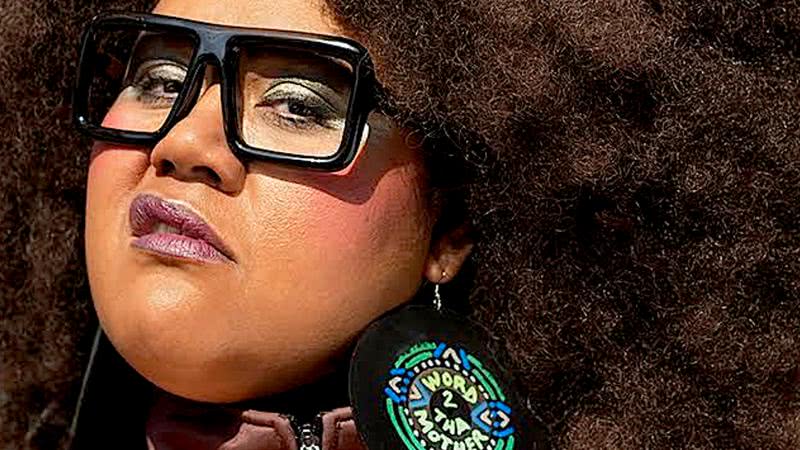Symbolic annihilation & music industry’s male gaze hot topics at AWMAs

As is now the AWMAs tradition, the Australian Women in Music conference’s panel on stereotypes and images of gender, race, sex and cultural diversity marked a win for the music industry today.
Moderated by brilliant (and funny) First Nations Broadcaster Rhianna Patrick, the panel of artists and industry dove into topics considered taboo among many circles – even in the post-#metoo era.
Angela Samut (CEO, QMusic), Amy Sheppard (Artist, Sheppard), Billie McCarthy (Artist) and Kim ‘Busty Beatz’ Bowers (Artist, Hot Brown Honey) were candid, honest, and spoke from a place which not only sobered the audience, but gave us real tools for change.
Titled Image Making – The Changing Face of Music, Rhianna Patrick expertly introduced the panel offering recent examples of women railing against objectification. Billie Eilish is renowned for her androgynous clothing yet revealed she can’t escape sexualisation and double standards. In 2014, Maddie & Tae fired a shot at bro country in ‘Girl In A Country Song’. And who could forget when Jessica Mauboy was told to “lose the jelly belly” from Kyle Sandilands on Australian Idol when she was 16-years-old?
Yet, the late and great Biggie Smalls was never asked about his weight during his prolific career and Lizzo is globally celebrated, despite her weight being a hot topic for media.
They’re watching…
Brisbane-based Amy Sheppard, who founded the viral #KISSMYFATASS movement, said being a public figure has made her realise just how watched you are as a woman in music.
“People are watching you. If you put on weight, you’re criticised. If you lose weight, you’re criticised. There’s always someone to notice that,” she said. “We live in such a visual world and I worry that people are watching you more than they’re listening to you.”
Billie McCarthy, a Tamworth-born neo-soul artist whose one-woman-shows examine gendered functions, said the type of bullying she’s experienced has largely been left out of the conversation when you talk about images of gender, race, sex and cultural diversity.
“I’ve walked down the street and had people yell ‘fat bitch’ out of their cars at me,” she said. “I’ve copped it all. And I still sit in a privileged position; I’m an Australian-born, white woman. It’s this one intersection that seems to be left out of the conversation, up until this point.”

Billie McCarthy
Billie McCarthy said it took her a while to be able to channel her experience with bullying into her art.
“As the anger was building inside of me I had to channel it in a particular direction,” she said, “and that’s been my work.”
McCarthy created her 2018 show ‘Billie McCarthy takes up space’ to rail against the cultural baggage that comes along with judgement of size and to destigmatise the word ‘fat’.
“By doing that I realised if I’m putting myself out there and I’m saying exactly how I feel, then nothing can touch me,” she said. “[…] It really made a difference in how I viewed myself and how I viewed the world.”
The male gaze behind the scenes
Following her role at Screen Queensland, Paramount Pictures, Network 10 and as National Publicist for Festival Mushroom Records from 2002-2004, QMusic CEO Angela Samut said she has worked for 20 years under the male gaze.
“It’s not just in front of the camera it’s also behind the scenes,” she said.
Later in the discussion Angela Samut offered an anecdote of office life during her time at Michael Gudinski and Michael Parisi’s Festival Mushroom Records: “We would marvel that we would be eating less calories than people in third world countries,” she said frankly.
“When I worked at Festival Mushroom we were always commented on,” she said.
Having sat on a board for women with eating issues, Samut knows all too well how necessary it now is for women to talk about unrealistic expectations. “It’s vicious and I think women need to come together more and talk about it more.”

Angela Samut, QMusic CEO
Is there a connection between our bodies and the music industry?
You knew you were about to be educated when you saw that Kim ‘Busty Beatz’ Bowers was wearing a ‘make way for the matriarchy’ T-shirt.
Having signed her first record deal in 1992 with Half A Cow Records with her high school indie band Spdfgh, Bowers said as her experience as a woman of colour in the music industry has been “filled with wrath”.

Kim ‘Busty Beatz’ Bowers
“The actual industry itself was always jarring up against what we did as a band but also for me personally,” she said. “As a black woman it was industry-style white wash, male gaze – I’m talking ‘90s […] You should look a certain way. There was a feeling, you should be a certain way.”
“As a black woman, as a big woman, all of those things are stacked against who can be in a sector,” she added.
A communal gasp hit the room when Bowers told an anecdote of a time when she attended a keynote by “one of the many white men” in the label industry. When talking about one particular artist, this man said the artist “had beautiful music, but a face of a dog”.
Make way for the matriarchy
Touching on her #KISSMYFATASS movement, Amy Sheppard said it was sparked by a single photo upload to her 67K Instagram followers.
“I remember one day looking for a photo to upload because I was [thinking] ‘Oh the algorithm is going to punish me’,” she laughed. “I came across this one photo that my boyfriend took of me by the pool and it was really candid, and he was like, ‘you should post this one, I love this photo of you’. I was like ‘oh my god no look at all my cellulite up the back of my leg.”
Sheppard said after using face-tune on her legs, then her back, then her face, she couldn’t even recognise herself.
“[I thought] here I am about to share this photo to my followers and they’ll be comparing their real butts to my fake butt. It’s not fair,” she said. “And that’s when I had the lightbulb moment and I said I’m not going to do this anymore.”
Sheppard did post the photo, unedited, and it became her most-liked image. After posting another photo saying ‘Here’s my body if you don’t like it, you can kiss my fat ass’, the hashtag went viral and the now high-rotation song ensued.
Watch Sheppard’s video for #KISSMYFATASS below:
Kim ‘Busty Beatz’ Bowers said her Hot Brown Honey musical theatre show, which is set to tour Canada next May, rails against patriarchal and cultural oppression towards women in the industry.
“With everything we put out there it is all about flipping the script, it’s all about visibility,” she said.
Billie McCarthy said one thing missing from the conversation around women in music is class stature in a time when women are seen as a consumable product.
“If you don’t have the money to pay for a publicist, or promotion, or designer clothes, to get you to that certain level […] – as an emerging artist you need to do it all yourself – and if you don’t have those privileges, if you don’t have those advantages, it is something that holds you back.
“[…] And therefore you end up ageing out of the industry,” she continued. “Why is that the case? Why is there this idea that women are only okay if they’re ‘fuckable’?”
Kim ‘Busty Beatz’ Bowers said this rampant erasure of women over 40 is called ‘symbolic annihilation’.
“That is so real. It is quite full on,” she said. “It also tends to a culture that doesn’t look after its elders. We have so many amazing musical elders that we have not looked after.”
Amy Sheppard said that when combatting these issues, education is key.
“We can’t expect the big wigs of the music industry to hear one conversation from some loud women and be like, ‘Oh yeah, they’re right we’re just not going to make millions of dollars and do things the way that we’ve done for years and years’.
“It’s got to come from a cultural change,” she added. “It’s not going to happen overnight. It’s going to be a few years. But I think we are moving, very slowly, in the right direction…
“With artists like Billie Eilish, Florence and the Machine, Lorde. I think we need more role models like these women.”
The second annual Australian Women in Music Conference and Awards continues tomorrow (Oct. 9) and Brisbane Powerhouse.
This article originally appeared on The Industry Observer, which is now part of The Music Network.






























